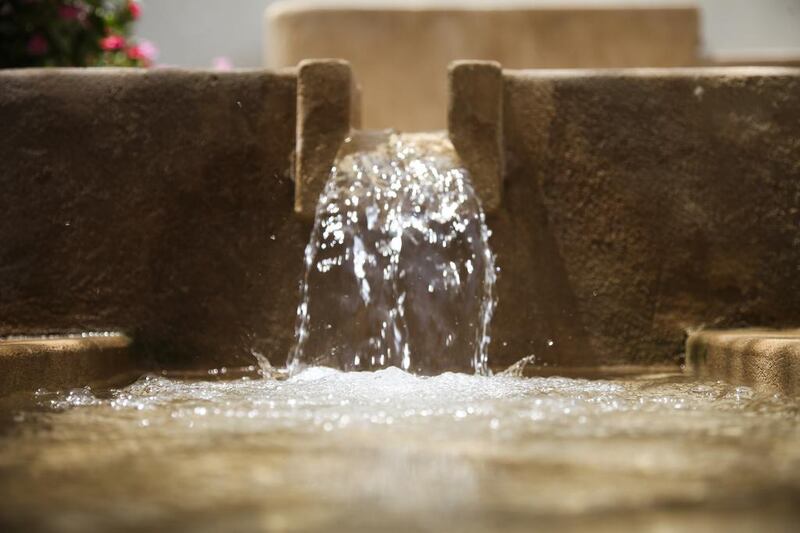With a twentieth of the world's population but little more than one per cent of its renewable water resources, the Arab world faces major challenges when it comes to water scarcity.
And with the region set to see its population double by 2050, these difficulties are only going to intensify.
Yet the World Science Forum in Jordan was told that longstanding efforts to forge intergovernmental agreements on how the region's water is used have made little progress.
“After 50 years of science diplomacy are we better off or worse off? Water issues persist.
"All evidence points to us being far away from being where we would like to be,” Dr Ghaith Fariz, director of the Unesco Regional Bureau for Science in the Arab States, said during a session at the forum entitled, 'Lessons learnt and future prospects for management of shared/transboundary resources in the Arab region'.
Dr Fariz described water as “the most pressing issue in the Arab region” and “a crisis of government”.
“Appropriate cost-effective science is needed to provide a platform to implement effective water governance,” he said.
According to a 2013 United Nations Development Programme report, 14 of the 20 most water-stressed countries in the world are in the Arab world.
Welcome to the world science forum

Dr Fariz suggested that ensuring that water issues in the region had a stronger grounding in science and technology could help to prevent them from becoming politicised. Echoing this point, another UNESCO official, Professor Andras Szollosi-Nagy, said scientific tools “enable the creation of a joint perspective” instead of countries looking at shared water assets from the point of view of only their own interests.
The need for transnational agreements is particularly acute because the majority of the region's water resources cross borders.
In the Gulf nations, which lack major river basins, concern centres on the extraction of water from underground aquifer water reservoirs, rather than from rivers.
In the UAE, for example, 51 per cent of the water supply comes from groundwater, a resource that is predicted to become depleted in the decades to come.
“Most of the groundwater systems are not renewable,” said Professor Waleed Zubari, professor of water resources management at the Arabian Gulf University in Bahrain, adding that much “best practice” when it came to water resources originated from scientists.
Dr Hassan Al Janabi, Iraq's minister of water resources, indicated that despite the challenges, there was cause for optimism, saying that his own country's relations with its neighbours when it came to water resources were improving.
“At least we're talking to each other. I visited Turkey in March. For the first time I felt we could talk about this issue,” he said.
“We are hopeful, with the current conditions between the two countries, we can reach an agreement so we can minimise the damage to our country and region.”







